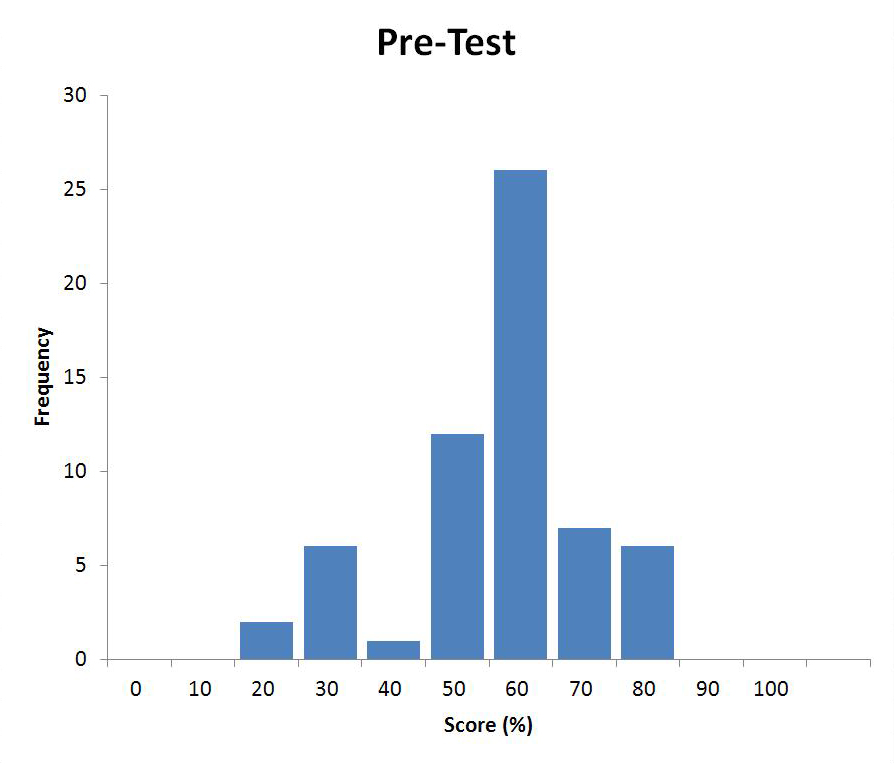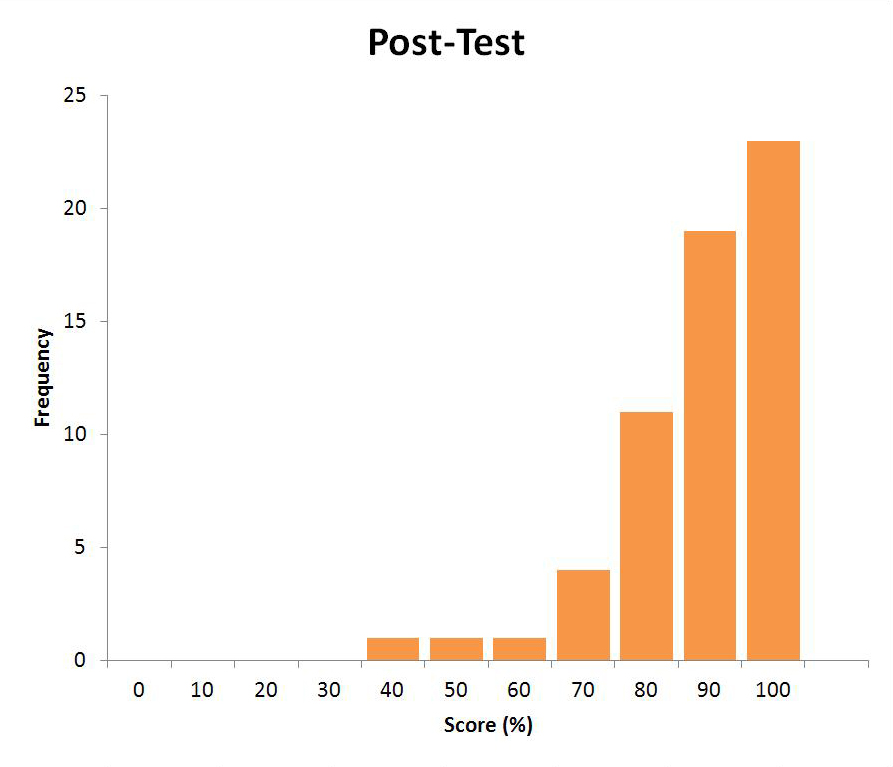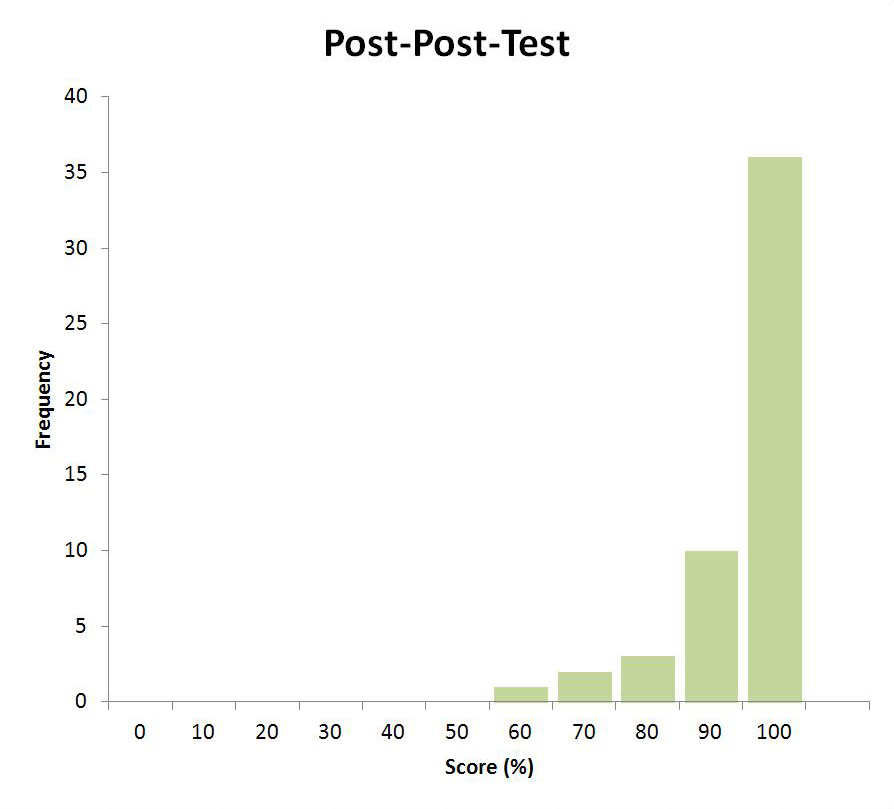


Theme
8BB Teaching and learning: Principles
INSTITUTION
1. University of Alberta, Edmonton, Alberta, Canada
2. Vancouver Community College, Vancouver, British Columbia, Canada
3. Alberta Health Services, Edmonton, Alberta, Canada

Distributed test-restudy (repeated practice tests, integrated with restudy, and distributed over time) has been proposed as a way to increase the durability and efficiency of learning1.
The purpose of this study is to evaluate distributed test-restudy on learning in an undergraduate medicine/dentistry course.
One hundred and ninety nine MD and DDS students were introduced to respiratory medicine through lectures, labs, and problem-based learning. Students completed a pretest (week 3), a lab allowing for restudy of key objectives (week 3), a posttest (week 4) and a post-posttest (week 8). Correct responses were provided after the pretest and restudy lab to allow for formative feedback. Students then completed a questionnaire designed to assess their perceptions and experiences.
Eighty eight percent of participating students were in the MD program; the remainder were Dental students.
Pretest: average: 50%; standard deviation: 12%; minimum: 17%; maximum: 75%; students achieving a perfect score (mastery): 0%.
Posttest: average: 87%; standard deviation: 15%; minimum: 33%; maximum: 100%; mastery: 29%.
Post-posttest: average: 90%; standard deviation: 9%; minimum: 75%; maximum: 100%; mastery: 29%.
A significant increase in the average score occurred between the pretest and posttest (p < 0.001) and the pretest and post-posttest (p < 0.001). There was no difference between the posttest and the post-posttest (p = 0.126).
Fourty four percent of students agreed/strongly agreed that the pretest was helpful. 99% agreed that the restudy lab and posttests were useful. 99% would recommend this to other students.



One hundred years of research has demonstrated the positive effect of practice tests on learning1. Recent studies have demonstrated benefit of distributed test-restudy strategies in the classroom2,3. This study is consistent with published outcomes.
Distributed test-restudy has the potential to enhance learning within the health professions.
- Rawson K, Dunlosky J (2012). When is practice testing most effective for improving the durability and efficiency of student learning? Educational Psychology Review, 24, 419-435.
- McDaniel M, et al (2011). Test-enhanced learning in a middle school science classroom: the effects of quiz frequency and placement. Journal of Educational Psychology, 103, 399-414.
- Roedifer H, et al (2011). Test-enhanced learning in the classroom: long-term improvements from quizzing. Journal of Experimental Psychology. Applied, 17, 382-395.
 Send Email
Send Email